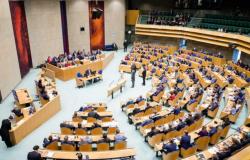Update 28-03: the outgoing cabinet and the Eindhoven region have now confirmed the commitment. The original article of March 26 has therefore been updated.
The outgoing cabinet, together with the Eindhoven region, will hold the purse strings for the Dutch tech sector. 2.5 billion euros in additional expenditure will end up at technical universities and Brainport Eindhoven in particular, including approximately 500 million for the development of local infrastructure. Are the new releases enough?
The money will be invested in three parts: extra money for housing, the education sector (TU Eindhoven in particular) and to improve the local infrastructure. The Dutch government expects a return from ASML for the extra money: it must make “further investments in the Netherlands” and remain established in this country.
In concrete terms, almost 20,000 new homes will appear in the Eindhoven region. A one-off investment of 450 million in technical education until 2030 is not limited to TU Eindhoven, because the TUs in Groningen, Enschede and Delft will also benefit from it. After 2030, annual investments will amount to 80 million. The government hopes to prepare more local personnel to work in the chip industry.
The amount of 2.5 billion euros is the sum of contributions from the outgoing cabinet (1.7 billion) and the Eindhoven region (800 million). seems to be the answer to the one-time billion-dollar investment that Eindhoven mayor Jeroen Dijsselbloem advocated two weeks ago. He noted the importance of more investments in the accessibility of the region, crucial to provide the countless tech companies with employees. Since the region itself is packed, relocation is necessary in many cases.
Although ASML is by no means the only prominent tech company in the region, it serves as a figurehead for Brainport Eindhoven. Dijsselbloem noted to the FD that each ASML employee creates 2.8 additional workplaces in the supply chain. A possible departure or gradual withdrawal of that company would therefore have major consequences.
Don’t just need money
The government has finally realized that additional investments are needed. With the previously leaked ‘Beethoven plan’, ASML should be retained for the Netherlands. That is relative, because ASML already has offices all over the world. The company therefore has the choice to expand elsewhere than in Veldhoven, where the international head office is located. Our government hopes to ensure that ASML continues to expand within the Netherlands.
An important sore point at the moment is that the government cannot come up with too drastic plans. Its caretaker nature prevents radical investments, so we must view the proposed plans as a first move that the next cabinet must follow. The NOS indicates that the region and companies strongly hope for this.
Reading tip: ASML tumult drives the Netherlands to better EU coordination on exports
However, it takes more than just money. ASML, NXP and other tech companies in the Eindhoven region cannot rely on Dutch talent alone. Promising international students must be given the opportunity to study at TU Eindhoven, while foreign talent who is already on the work floor must find the Netherlands an attractive location. Simplified tax rules for them prevent this, while the political plans of the proposed government parties PVV and NSC may make it more difficult to recruit foreign talent. For example, Pieter Omtzigt’s party is against a prominent role for the English language within Dutch universities and colleges, something that is simply necessary to attract international students.
Also measures at a higher level
The commitment of 1.7 billion euros from the current cabinet must therefore be followed up by the next coalition. European cooperation can also offer a way out, although mutual competition with other EU member states can cause problems. After all, Germany, France and Poland, among others, would also like to expand their chip industry and are spending their money on this. In this way, these countries supplement investments from parties such as Intel and TSMC with their own amounts, resulting in more lucrative local jobs.
It is important for the Netherlands not only to close the gap between the ideas of business and politics. Departing ASML CEO Peter Wennink noted that it is not so much the ministers, but rather the House of Representatives, that does not seem to understand what the tech sector can do for the Netherlands. In fact, ASML is the only supplier of the most advanced chip machines, allowing it to see itself as the linchpin of the chip industry, just like TSMC and Nvidia. For the Netherlands, this means that it has control over one of the most important links in this sector, something that few countries can say. It is true that it still has to accept the influence of the US, partly because some of the components of ASML scanners are of American origin.
Countries such as Taiwan, the United States and South Korea appear to better understand the strategic relevance of their chip industries. Much larger investments are being made in those countries to guarantee their own role in the semiconductor supply chain. The question remains whether Europe can harmoniously coordinate similar investments, or whether the Netherlands must guarantee its own expertise in order to compete with abroad. If the latter is the case, more than 2.5 billion euros will be needed.
Also read: Prince Constantijn: ‘Dutch tech investment engine is faltering’






